Search
Search Results
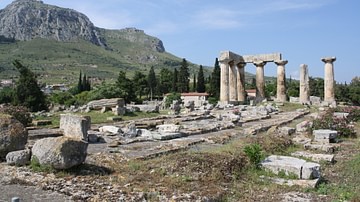
Definition
Corinth
Corinth was a Greek, Hellenistic and Roman city located on the isthmus which connects mainland Greece with the Peloponnese. Surrounded by fertile plains and blessed with natural springs, ancient Corinth was a centre of trade, had a naval...

Definition
Library of Alexandria
The Library of Alexandria was established under the Ptolemaic Dynasty of Egypt (323-30 BCE) and flourished under the patronage of the early kings to become the most famous library of the ancient world, attracting scholars from around the...
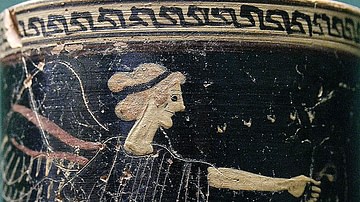
Definition
Iris
Iris is the goddess of rainbows and an important messenger between the gods and humans in Greek mythology. She was most commonly portrayed as the personal messenger of Hera. Iris was the daughter of the Titans Thaumas and Electra and the...
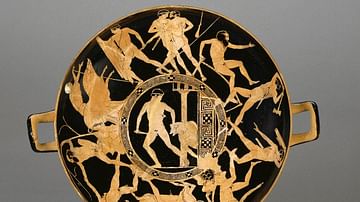
Definition
Theseus
Theseus is a legendary hero from Greek mythology who was considered an early king of Athens. Famously killing villains, Amazons, and centaurs, Theseus' most celebrated adventure was his slaying of the fearsome Minotaur in the labyrinth of...

Definition
Greek Colonization
From around 800 BCE, ancient Greek city-states, most of which were maritime powers, began to look beyond Greece for land and resources. As a consequence, they founded colonies across the Mediterranean. Trade was usually the first step in...
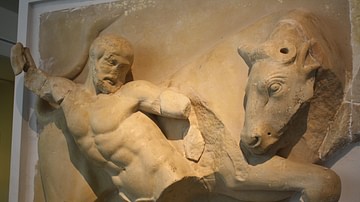
Definition
Hercules
Hercules (Herakles) was a hero of Greek mythology famous for his great strength and endurance. Celebrated as an extraordinary mortal, his success in seemingly impossible labours won him an immortal place amongst the gods. As the greatest...
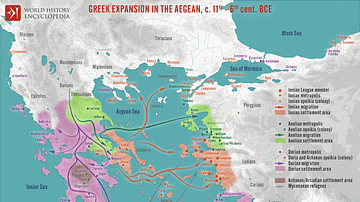
Definition
Aegean
The Aegean Sea lies between the coast of Greece and Asia Minor (modern-day Turkey). It contains over 2,000 islands which were settled by the ancient Greeks; the largest among them being Crete (Kriti) and the best known and most often photographed...
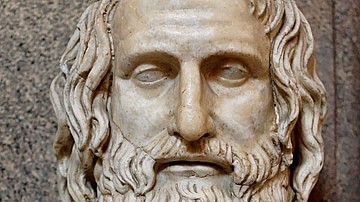
Definition
Euripides
Euripides (c. 484-407 BCE) was one of the greatest authors of Greek tragedy. In 5th century BCE Athens his classic works such as Medeia cemented his reputation for clever dialogues, fine choral lyrics and a gritty realism in both his text...
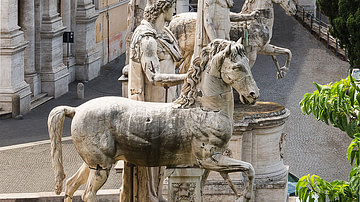
Definition
Castor and Pollux
Castor and Pollux (the Dioscuri) are figures from Greek and Roman mythology considered the twin sons of Zeus or Jupiter. Semi-divine figures, the twins were credited with the role of saving those in trouble at sea or in grave danger in war...

Definition
Ariadne
Ariadne is a figure in Greek mythology, best known for her role in helping Theseus to defeat the monstrous half-man half-bull Minotaur, her half-brother, and escape the Labyrinth, the torturous maze beneath the palace of Knossos in Crete...